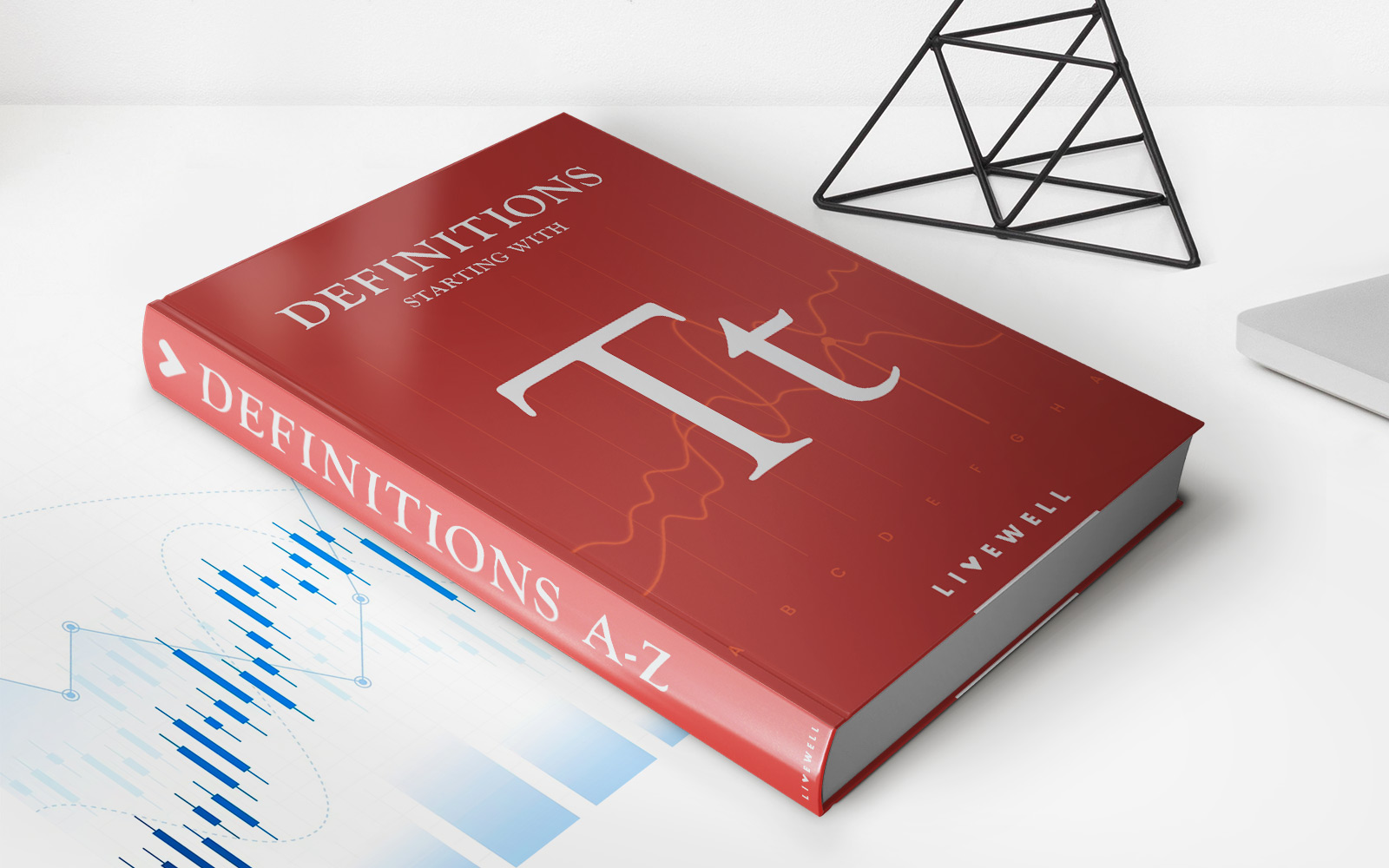Home>Finance>How Much Does Retirement Planning Cost With A Financial Advisor


Finance
How Much Does Retirement Planning Cost With A Financial Advisor
Published: January 21, 2024
Wondering about the cost of retirement planning with a finance advisor? Discover how much it may cost and find the right financial advisor for your needs.
(Many of the links in this article redirect to a specific reviewed product. Your purchase of these products through affiliate links helps to generate commission for LiveWell, at no extra cost. Learn more)
Table of Contents
- Introduction
- Understanding the Importance of Retirement Planning
- The Benefits of Working with a Financial Advisor
- Factors Affecting the Cost of Retirement Planning
- Different Fee Structures used by Financial Advisors
- Average Costs of Retirement Planning with a Financial Advisor
- How to Choose the Right Financial Advisor for Your Retirement Planning Needs
- Conclusion
Introduction
Retirement planning is a crucial aspect of financial management that individuals need to consider as they aim to secure their future. It involves making strategic decisions and implementing effective strategies to ensure a comfortable and financially stable retirement.
However, navigating the complex world of retirement planning can be overwhelming, especially for those without a deep understanding of finance. That’s where a financial advisor comes in. A financial advisor can provide valuable guidance and expertise to help individuals create a comprehensive retirement plan tailored to their unique goals and circumstances.
In this article, we will explore the importance of retirement planning and the benefits of working with a financial advisor. We will also delve into the factors that can affect the cost of retirement planning and discuss the various fee structures used by financial advisors. Additionally, we will provide insights into the average costs of retirement planning and offer tips on how to choose the right financial advisor for your retirement planning needs.
Whether you’re just starting your career or are approaching retirement age, it’s never too early or too late to begin planning for your financial future. By understanding the intricacies of retirement planning and the role of a financial advisor, you can make well-informed decisions that will set you on a path to a comfortable retirement.
Understanding the Importance of Retirement Planning
Retirement planning plays a vital role in ensuring financial security during one’s golden years. It involves setting aside funds and making investments to generate income after one exits the workforce. Here are some key reasons why retirement planning is crucial:
- Financial Security: Retirement planning is essential for maintaining financial stability. It allows individuals to accumulate sufficient funds to support their lifestyle and cover expenses during retirement when they no longer have a regular paycheck.
- Longer Life Expectancy: People are living longer than ever before, which means retirement can potentially stretch for several decades. Adequate planning ensures that individuals can enjoy a comfortable retirement without the fear of outliving their savings.
- Healthcare Costs: Healthcare expenses tend to increase with age. A well-thought-out retirement plan takes into account potential medical costs, providing a safety net to cover medical bills, prescriptions, and long-term care requirements.
- Choice and Independence: Retirement planning offers individuals the freedom to make choices and pursue interests they may not have had the time or resources for during their working years. It allows for travel, hobbies, volunteer work, and spending quality time with loved ones.
- Minimizing Dependence on Others: Planning for retirement helps individuals avoid relying solely on government initiatives or family members for financial support. By building a solid retirement fund, individuals can minimize the burden on their loved ones and maintain their independence.
It’s important to start retirement planning as early as possible. The earlier individuals begin saving and investing, the more time they have to grow their funds and benefit from the power of compounding. Even if retirement seems far off in the future, taking small steps now can have a significant impact down the line.
A financial advisor’s role in retirement planning is to educate individuals about the importance of early preparation and help them create a realistic plan based on their goals, risk tolerance, and financial situation. By working with a financial advisor, individuals can gain clarity and confidence in their retirement journey.
The Benefits of Working with a Financial Advisor
Retirement planning can be a complex and challenging process, which is why many individuals choose to work with a financial advisor. A financial advisor brings a wealth of knowledge and expertise to the table, providing invaluable guidance throughout the retirement planning journey. Here are some key benefits of working with a financial advisor:
- Expertise and Knowledge: Financial advisors are trained professionals who specialize in retirement planning and investment strategies. They stay updated on the latest market trends, tax laws, and financial products, allowing them to provide informed advice tailored to each client’s unique needs.
- Customized Retirement Plan: A financial advisor will assess your financial situation, goals, and risk tolerance to create a personalized retirement plan. They will outline the steps needed to achieve your desired retirement income, considering factors such as investment allocation, tax efficiency, and estate planning.
- Investment Management: A financial advisor can help you build a well-diversified investment portfolio that aligns with your risk tolerance and retirement goals. They provide ongoing portfolio management, monitoring market fluctuations, rebalancing assets, and recommending adjustments to keep your investments on track.
- Maximizing Social Security Benefits: Social Security benefits can play a significant role in retirement income. A financial advisor can help you understand the complex rules and regulations surrounding Social Security and devise strategies to maximize your benefits, ensuring you receive the optimal amount over your lifetime.
- Estate Planning: As part of retirement planning, it’s important to consider estate planning to protect your assets and ensure a seamless transfer of wealth to your heirs. A financial advisor can work with you to create an estate plan, including wills, trusts, and beneficiary designations, to ensure your wishes are carried out.
- Emotional Support and Accountability: Retirement planning can be overwhelming and emotional. A financial advisor acts as a trusted partner who provides support, addresses concerns, and keeps you accountable to your retirement goals. They offer reassurance during market downturns and help you stay on track, even during uncertain times.
Working with a financial advisor can provide peace of mind, knowing that you have a professional guiding you towards a secure retirement. They not only offer expertise, but they also help you navigate the complexities of retirement planning, making the process more manageable and less stressful.
It’s important to choose a financial advisor who is reputable, experienced, and has your best interests at heart. By partnering with a trusted advisor, you can make informed decisions and stay on track towards achieving your retirement goals.
Factors Affecting the Cost of Retirement Planning
The cost of retirement planning services can vary depending on several factors. Understanding these factors can help you evaluate the potential costs involved and make an informed decision. Here are some key factors that can affect the cost of retirement planning:
- Complexity of Your Financial Situation: The complexity of your financial situation plays a significant role in determining the cost of retirement planning. If you have multiple sources of income, investments, and assets, it may require more time and expertise for a financial advisor to assess and develop a comprehensive retirement plan.
- Scope of Services: The breadth and depth of services you require from a financial advisor will impact the cost. If you need assistance with investment management, tax planning, estate planning, and other complex financial matters, it may involve additional fees compared to basic retirement planning advice.
- Advisor’s Level of Expertise and Credentials: The experience, qualifications, and reputation of a financial advisor can influence the cost of their services. Highly experienced and certified advisors may charge higher fees due to their specialized knowledge and track record.
- Time and Effort Required: The amount of time and effort a financial advisor needs to dedicate to your retirement planning will affect the cost. A thorough evaluation of your financial situation, in-depth analysis, and ongoing monitoring will likely incur higher fees compared to more basic retirement planning services.
- Geographic Location: The cost of retirement planning services can vary based on your geographic location. Advisors in larger cities or areas with a higher cost of living may charge higher fees compared to those in smaller towns or rural areas.
- Fee Structure: Different fee structures can impact the cost of retirement planning. Financial advisors may charge a percentage of assets under management (AUM), an hourly rate, a flat fee, or a combination of these. Understanding the fee structure can help you estimate the overall cost of their services.
- Additional Services and Expertise: If you require additional services beyond retirement planning, such as tax planning or investment management, it may incur additional costs. Likewise, specialized knowledge or expertise in areas like Social Security optimization or healthcare planning may result in higher fees.
It’s important to have transparent discussions with potential financial advisors about their fee structure and the specific services they provide. This will allow you to compare different options and assess the value you will receive for the cost. Remember, the cost of retirement planning should be viewed in the context of the potential long-term benefits and peace of mind that come with a well-crafted retirement plan.
Different Fee Structures used by Financial Advisors
When working with a financial advisor for retirement planning, it’s essential to understand the different fee structures they may use. The fee structure determines how the advisor is compensated for their services. Here are some common fee structures used by financial advisors:
- Percentage of Assets Under Management (AUM): Many financial advisors charge a percentage fee based on the assets they manage for you. This fee structure is typically a percentage of the total value of your investment portfolio. For example, if an advisor charges 1% and your portfolio is valued at $500,000, the fee would be $5,000 per year. AUM-based fees can provide transparency, as the fee adjusts with the value of your portfolio.
- Hourly Rate: Some financial advisors charge an hourly fee for their services. This fee structure is based on the amount of time the advisor spends working on your retirement plan or providing financial advice. Hourly rates can vary widely depending on the advisor’s expertise and location.
- Fixed or Flat Fee: Financial advisors may charge a fixed or flat fee for specific services. This fee structure is often used for one-time financial planning projects or for a limited scope of services. For example, an advisor might charge a flat fee for creating a comprehensive retirement plan or conducting a portfolio review.
- Commission-Based: Commission-based advisors earn their compensation by selling financial products, such as mutual funds or insurance policies. They receive a commission for each product sold, which can vary based on the type and size of the product. It’s important to be aware of potential conflicts of interest when working with commission-based advisors, as their recommendations may be influenced by the commission they receive.
- Hybrid Fee Structure: Some financial advisors use a combination of different fee structures. For example, they may charge a percentage fee for managing your investments (AUM-based), while also charging an hourly fee for additional financial planning services. This hybrid fee structure allows for flexibility based on the specific needs of the client.
Each fee structure has its own advantages and considerations. It’s important to understand and compare the costs associated with different fee structures, as well as the services provided under each structure. Consider your financial situation, investment needs, and the level of ongoing support required when selecting a fee structure that aligns with your goals and budget.
When discussing fees with a financial advisor, ensure that you have a clear understanding of what is included in their services and any potential additional costs or charges. Transparency in fee discussions will help you make an informed decision and ensure a successful and mutually beneficial working relationship with your financial advisor.
Average Costs of Retirement Planning with a Financial Advisor
The cost of retirement planning with a financial advisor can vary depending on several factors, such as the advisor’s experience, the complexity of your financial situation, and the scope of services provided. It’s important to note that there is no set industry standard for retirement planning fees, and costs can differ significantly. However, understanding average costs can provide a general idea of what to expect. Here are some factors to consider when estimating the average costs of retirement planning with a financial advisor:
- Percentage of Assets Under Management (AUM) Fees: For advisors who charge a percentage of AUM, the average fee typically ranges between 1% and 2% of the total assets they manage on your behalf. However, this can vary depending on the advisor’s level of experience and the size of your investment portfolio.
- Hourly Rates: Financial advisors who charge hourly rates may have rates that range from $100 to $300 per hour, depending on their expertise, location, and the complexity of your financial situation. Be mindful that the amount of time required for retirement planning may vary from client to client.
- Fixed or Flat Fees: The average fixed or flat fee for retirement planning services can range from $1,000 to $5,000 or more. This fee structure is often used for one-time financial planning projects or specific services, such as creating a comprehensive retirement plan or conducting a portfolio review.
- Commission-based Fees: Advisors who earn commissions through product sales may not charge direct fees for retirement planning services. Instead, they earn their compensation through commissions received when clients purchase financial products. It’s important to carefully consider the potential implications of commission-based fees, including potential conflicts of interest.
- Hybrid Fee Structures: Advisors who use hybrid fee structures may combine different types of fees, such as AUM fees and hourly rates, to provide a more customized and flexible approach to retirement planning. The average cost will depend on the specific services required and the allocation between different fee components.
It’s important to keep in mind that the above figures are just averages and can vary widely. The actual cost of retirement planning may be higher or lower based on individual circumstances. To get a more accurate estimate, it is recommended to request fee schedules and proposals from multiple financial advisors and compare their services and associated costs.
When considering the costs of retirement planning, it’s essential to assess the value provided by a financial advisor. A comprehensive retirement plan, tailored to your goals and needs, can potentially save you significant time, stress, and financial mistakes in the long run.
Ultimately, finding the right financial advisor who offers the services you require at a reasonable cost is crucial. Consider your budget, financial goals, and the level of expertise needed when selecting an advisor to help you navigate the complexities of retirement planning.
How to Choose the Right Financial Advisor for Your Retirement Planning Needs
Choosing the right financial advisor for your retirement planning needs is a crucial decision that can significantly impact your financial future. Here are some essential factors to consider when selecting the right advisor:
- Qualifications and Credentials: Look for financial advisors who hold relevant certifications such as Certified Financial Planner (CFP) or Chartered Financial Analyst (CFA). These credentials indicate that the advisor has met rigorous educational and ethical standards.
- Experience and Expertise: Consider the advisor’s experience in retirement planning. Look for professionals who have a track record of helping clients achieve their retirement goals. Additionally, consider their expertise in areas such as investment management, tax planning, and estate planning.
- Fiduciary Duty: Ensure that the financial advisor you choose is a fiduciary. A fiduciary has a legal obligation to act in your best interest and provide advice that is free from conflicts of interest. This ensures that the advisor’s recommendations are aligned with your goals and not influenced by commissions or incentives.
- Transparent Fee Structure: Understand the advisor’s fee structure and ensure it aligns with your budget and expectations. Consider whether the fee structure is based on a percentage of assets under management (AUM), an hourly rate, a fixed fee, or a combination. Also, clarify any additional costs or charges associated with their services.
- Communication and Accessibility: Effective communication is essential in a successful advisor-client relationship. Ensure that the advisor is responsive, listens to your concerns, and explains complex financial concepts in a clear and understandable manner. Accessibility and regular updates are also crucial for staying informed about your retirement plan’s progress.
- Client Testimonials and References: Review client testimonials and ask for references from current or past clients. This will provide insights into the advisor’s professionalism, service quality, and ability to deliver results. Contacting references can help you gain a better understanding of what it’s like to work with the advisor.
- Compatibility: Consider the advisor’s philosophy, values, and approach to retirement planning. It’s important to find an advisor who understands your goals, risk tolerance, and retirement aspirations. A good fit between you and your advisor can lead to a long-lasting and beneficial relationship.
- Compliance and Reputation: Research the advisor’s compliance record and any disciplinary actions. Verify that the advisor is properly registered with relevant regulatory bodies and has a clean history. Additionally, consider their reputation within the industry and seek recommendations from trusted sources.
Take the time to interview multiple financial advisors to ensure you find the right fit. Prepare a list of questions that address your specific retirement planning needs and evaluate their responses carefully. Trust your instincts and choose an advisor with whom you feel comfortable discussing your finances and long-term goals.
Remember, selecting the right financial advisor is a significant decision that can have a lasting impact on your retirement. By doing thorough research and considering these factors, you can make an informed choice and establish a strong partnership with a trusted advisor who will guide you towards a financially secure retirement.
Conclusion
Retirement planning is a crucial step in securing a comfortable and financially stable future. Working with a financial advisor can provide the expertise, guidance, and peace of mind needed to navigate the complexities of retirement planning. Throughout this article, we have explored the importance of retirement planning, the benefits of working with a financial advisor, the factors that can affect the cost of retirement planning, and the different fee structures used by financial advisors.
Retirement planning is not a one-size-fits-all process, and the costs can vary based on individual circumstances and the level of services required. It’s important to assess the value provided by a financial advisor in relation to the fees charged, considering factors such as personalized advice, ongoing support, and expertise in retirement planning strategies.
When choosing a financial advisor, consider their qualifications, experience, fiduciary duty, and communication style. Transparent fee structures and client testimonials can also provide valuable insights into their services. Ultimately, finding the right financial advisor who understands your goals, values, and retirement aspirations is crucial. A strong partnership with a trusted advisor can help you create a comprehensive retirement plan, make informed decisions, and navigate the changing financial landscape with confidence.
Remember, retirement planning is a lifelong journey that requires regular reviews and adjustments. Stay proactive and engaged in your financial plan, and don’t hesitate to seek advice from a qualified financial advisor when needed. With proper planning and the guidance of a trusted advisor, you can embark on a fulfilling retirement journey that allows you to enjoy your golden years with financial security and peace of mind.














